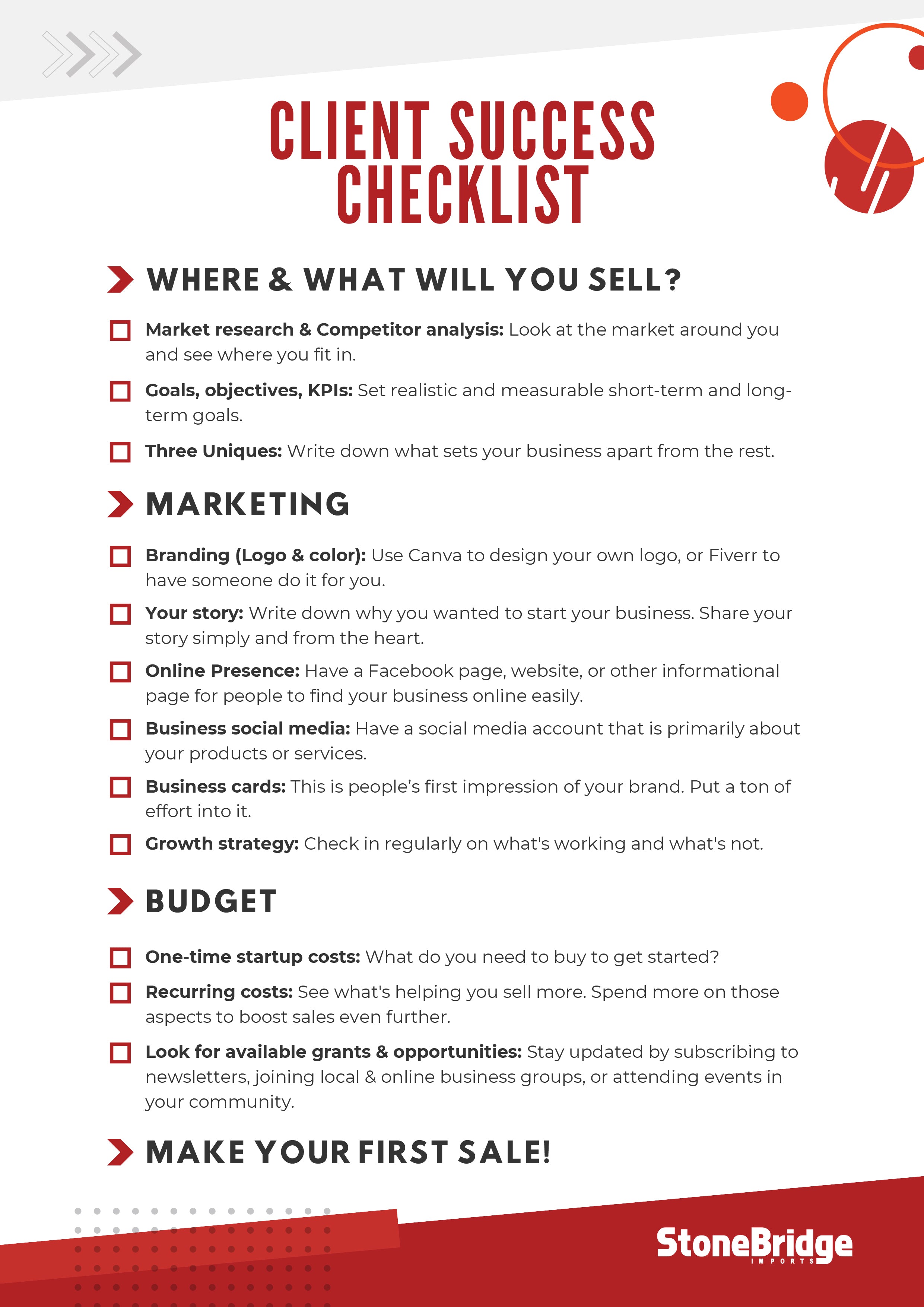Goals matter in setting up a successful business. They're the compass that leads your crystal business in the right direction. A well-defined set of goals also gives your team a clear focus and a solid idea of what success looks like for your business.
What Are Business Goals?
When running your crystal shop, it's not enough to know the properties of various rocks, minerals, and gemstones.
It's important to have concrete goals that will help you move your business forward while it delivers value to your crystal-loving customers.
So what exactly are business goals?
As Asana puts it, these are predetermined targets that you or your business aims to achieve within a span of time. Business goals are a mix of short-term and long-term goals. These goals can focus on various measurable actions.
Short-term goals are bound by an exact period of time, ranging from a few weeks to a full year. Whereas long-term goals are often set further into the future (typically a 10-year period) and are more concerned with the big picture. Long-term goals are often packaged as mission statements that guide the direction of a business.
Examples of short-term business goals:
- Hire 5 new store staff in the next 6 months
- Sign up 10 customers to the wholesale program by the end of January
- Increase customer satisfaction by 20%
Long-term business goals examples:
- To be the leading crystal supplier in Ontario
- To be the largest online repository of crystal information
- To support and promote local craftsmanship in Toronto
Most business owners set short-term goals as stepping stones to achieving larger, long-term goals. Together, these types of goals help steer your business to the next level.
Why You Need to Set Clear and Specific Business Goals
In addition to having a roadmap to success, below are other reasons why it's necessary to define your goals as you launch your crystal business:
1. It defines what success means to you
Getting down to serious goal setting allows you to spell out what success looks like to you and your team. As you do so, consider these: What skills do your employees have? How can they use their skills to grow the business? Motivate your staff to do their best and share your vision with them.
2. It links work and success
Want to make sure every task shapes the success of your business? Connect your business goals to the work your staff is already doing.
Connecting everyday tasks and responsibilities to your short- and long-term goals makes your employees understand what they need to do and the timeframe for completing their tasks.
This also urges your team members to develop strategies to achieve their goals. When they know their efforts influence the overall success of the company, employees get to take pride, confidence, and ownership of their work.
3. Promotes team alignment
Goals keep teams in sync with each other by directing all their efforts toward one common vision. It encourages team members to collaborate in creating tactics to reach their goals.
Let's say one of your business goals is to increase your monthly sales by 10%. There are many ways to achieve this and you can distribute the work to different teams.
Your sales team can increase their quota. Your marketing team can host events in your shop to bring customers to the door or run social media ads to get people's attention. This is just one of the ways teams can work together to achieve a shared goal.
4. Goals help you make informed decisions
Making decisions for your business becomes easier when you have goals in place. You get to distinguish between what's good for your business and what isn't, what will contribute to your objectives or not, and what will make or break your idea of success based on your goals. They're a guidepost that tells you what to pursue and what opportunities to seize.
Your goals can change over time depending on your priorities. And even if they do, you can use your previous goals to inform your present sales and marketing strategies as well as to track your progress.

RELATED READS:
- 7 Questions to Ask When Planning Your Dream Crystal Business
- CHECKLIST: 12 To-Do's to Set Up Your Own Crystal Shop
- Expert Tips in Setting Up a Crystal Business
- How to Pack Crystals & Protect Them From Damage During Transit
How to Set Goals for Your Crystal Business
Now that you know why goal setting is so important, let's identify some ways you can crystallize your own goals as you make your crystal shop happen.
1. Know your priorities.
At the early stages of your business, you'll feel an overwhelming sense to do everything at the same time. Build your crystal inventory, build your customer base, create a sales and marketing strategy, manage your finances, hire people, and streamline your processes”the list goes on.
Before you get lost in the details, you MUST know your top priorities. One way to get clarity on the goals you need to prioritize is conducting a strengths, weaknesses, opportunities, and threats (SWOT) analysis. This gives you a glimpse into where your would-be business stands in the industry, how to position your company and products, and what to build your strategies around.
- Strengths: The value your business will bring to customers and the industry, advantages you have over your competitors
- Weaknesses: What your business lacks, factors within your control that affect your ability to maintain your competitive edge
- Opportunities: Products, processes, markets, and other factors where your business has the potential to grow
- Threats: Challenges your business may face from competitors, market demand, supply chain, etc.
From this information, pick 3 to 5 priorities to create goals for building your client base, growing your revenue, developing a marketing strategy targeted to your intended customers, and building your brand.
2. Make SMART goals.
So you now have your goal ideas for your business. The next step is to turn these ideas into concrete and actionable goals. SMART stands for:
- Specific: What exactly are you going to do? Why is it important? Who is involved? Where is the goal located?
- Measurable: How will you know you've reached your goal? How many/much? What metrics or indicators will you measure? What sources of information will you use to know you've achieved your goal?
- Achievable: How is this goal achieved? What resources will you need to achieve this goal? If not, how will you achieve it?
- Relevant: Is your goal related to the direction you want your business to take? Is it the right time to accomplish this goal? Is it worthwhile for your business?
- Time-bound: When will you achieve this goal? What can be accomplished within the timeframe? What actions should be done in the immediate future (6 weeks) or in the longer timeframe (6 months)?
Let's say you're running your Kitchener-Waterloo crystal business for 6 months and you plan to expand your customer base, revenue, and marketing strategy further.
Turning that into a SMART goal, it should look like this:
- Specific: Gain 20 new customers for the crystal shop from within the Kitchener-Waterloo area.
- Measurable: Measure progress by tracking the number of new buying customers in the database and profits earned.
- Achievable: This will be done by ramping up sales promotion online (via Facebook, TikTok, Instagram, and the online shop) and by distributing the flyers near the store.
- Relevant: This goal will help us increase the number of new customers, boost our brand, and eventually grow the crystal business and profits.
- Time-bound: This will be achieved by the end of Q4 2022.
3. Set your KPIs.
Once you're set with your SMART goals, think about how you're going to measure your success and the timeframe for achieving them. To assess your success, you need to set your key performance indicators (KPIs). Now KPIs are crucial because you simply can't manage what you don't measure.
KPIs are numbers you track regularly. They show you the level of progress you've made with your goals. Looking at these numbers also motivates you to do better and work harder to achieve the outcomes you want.
Using the same example above, KPIs would be:
- The number of new customers that bought your products
- The number of clicks and impressions your online ads acquired
- Number of flyers handed out
- Number of calls received as a result of the flyers
- Monthly sales targets
- Customer satisfaction rate
- Employee satisfaction rate
- Amount spent on every customer
You can set individual KPIs for every one of your staff members. It's a way to motivate them to help meet the overall business goals. Aligning individual goals to the bigger company objectives increases ownership and accountability among your employees, increasing the rate of success.
Other Factors to Consider When Setting Your Goals
Make sure to keep track of these aspects as you start working through your SMART goals:
- Timeframe - Set a specific deadline for completing your goals. Don't leave things up to chance! Gather your team together and set expectations on how long their tasks take. Set a realistic timeline for every goal.
- Actions - Break down your goals into individual tasks your staff must take to complete each goal. For example, research on potential bulk crystal suppliers in Kitchener and research on their product offers.
- Resources - Determine your budget, staffing requirements, and additional supplies you'll need to achieve your goal.
- Accountability - Share your goals to all your team members and even to your customers, family members, etc. It's good to have someone remind you to stay on track of your goals.
- Review - Always revisit your goals and regularly review your progress. Take note of additional actions to take or areas of improvement if you're not on track.
Choose a Supplier That Can Grow with You
A huge influence on your success is your crystal supplier. As your business partner, your supplier must be able to support your vision no matter what stage your business is in. When you're ready to realize your goals, Stonebridge Imports is here to support you!
From profitable crystals to expert business advice, we're fully armed to help you scale your crystal business. Apply for a wholesale account today to get started.

Sources:
Berry, T. (2020, July 10). *How to Do a SWOT Analysis for Better Strategic Planning Bplans. Bplans Blog. https://articles.bplans.com/how-to-perform-swot-analysis/
MasterClass. (2021, August 31). The Ultimate Guide to Setting Business Goals. MasterClass.com. https://www.masterclass.com/articles/the-ultimate-guide-to-setting-business-goals
Quinn, J. (2020, November 6). How to Set Clear and Actionable Goals for Your Business Bplans. Bplans Blog. https://articles.bplans.com/how-to-set-clear-and-actionable-goals-for-your-business/
Set goals for your business business.gov.au. (2022, July 6). business.gov.au. https://business.gov.au/planning/business-plans/set-goals-for-your-business
Setting Business Goals: The First Step to Business Success. (n.d.). Asana. https://asana.com/resources/business-goals-examples





